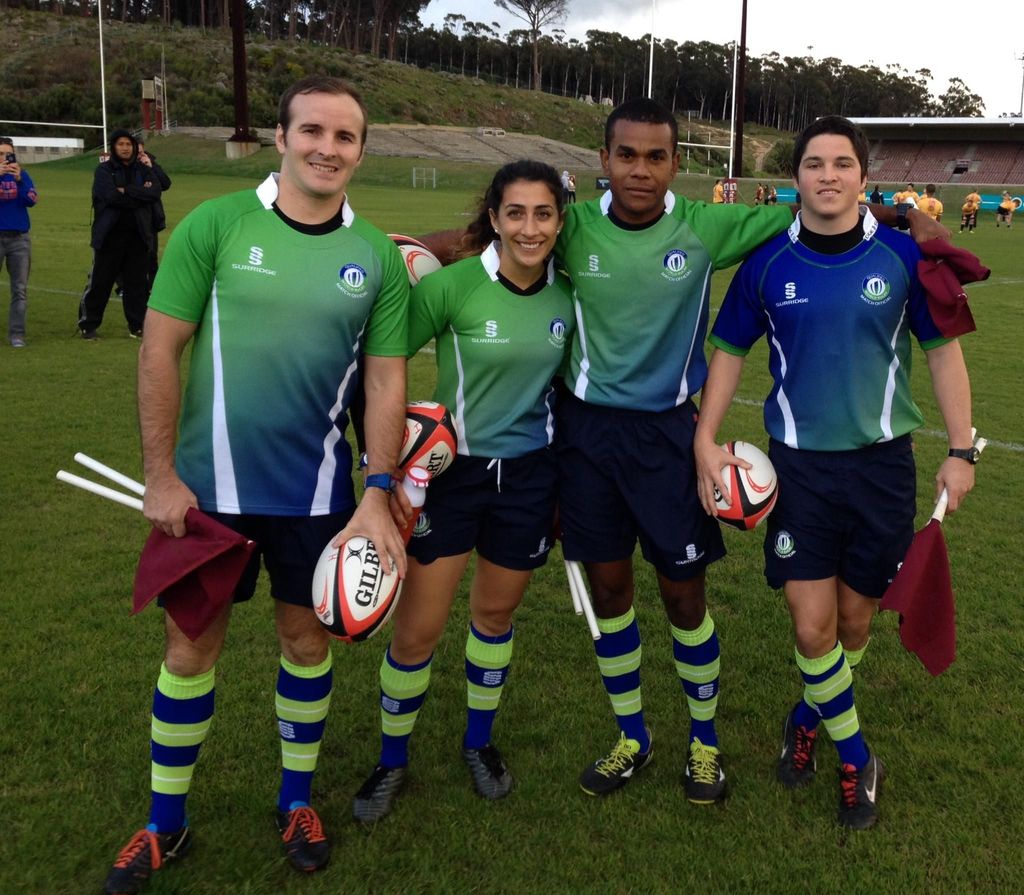Thirty coaches, match officials and strength and conditioning coaches from 18 nations converged on Stellenbosch University in South Africa last week for the World Rugby Talent Optimisation Programme.
The nations represented at the 2015 edition from 19-25 July were Argentina, Belgium, Brazil, Canada, Fiji, France, Georgia, Hong Kong, Japan, Namibia, Portugal, Romania, Samoa, Spain, Sri Lanka, Tonga, Uruguay and the USA.
An annual event since it was first held in 2003 under the name Talent Identification Programme, it has been more closely aligned with World Rugby’s portfolio of training and education courses since 2011, hence the change of name.
The Talent Optimisation Programme is aimed at coaches and match officials with significant experience and qualifications who are looking to optimise their talents in a high performance environment.
"I think it is a major tool for the tier two countries who are represented here to help them progress their high performance structures in their own countries."
Each day began with a trigger lecture before the participants split into the three strands of 10 coaches, 10 match officials and 10 strength and conditioning coaches for the practical programmes.
Among the names giving these lectures were the likes of former Italy and South Africa coach Nick Mallett, who gave his insight into critical factors for Rugby World Cup 2015, and South African international referee Marius van der Westhuizen.
A major tool for progress
Former Scotland and Georgia coach Richie Dixon, new Namibia coach and former Welsh international Phil Davies, former pole vaulter and IRFU Director of Fitness Dr Liam Hennessy and World Rugby Referee Development Consultant Bernd Gabbei were among those leading the strands throughout the week.
“The major benefit for participants on the TOP course is bringing them up to speed in terms of real high performance expectations and how you deliver,” explained Dixon. “Exercising the detail, how ruthless and relentless high performance can be.
“They are really responding very well, the current group were very enthusiastic and diligent and I think they picked up a lot of the materials from presentations, much of which of course is new to them so it was very, very positive.
“I think it is a major tool for the tier two countries who are represented here to help them progress their high performance structures in their own countries.”
Davies, who arrived at Stellenbosch fresh from leading Namibia to back-to-back victories over Russia, added: “I think firstly when I attended the programme last year, what struck me was the support of World Rugby for the tier two nations and I think it is a vital part of upskilling the tier two nations in order for them to move forward and grow the game in their relevant countries.

“The good idea I feel is getting the referees, the S&C and the coaches together and that just shows the need to join up the approach – very similar to the tier one nations.
“I think it is a great week of education, interaction and understanding of how to develop the game when they go back to their countries. I think it is a fantastic initiative and potentially I feel should be done more.”
Multi-faceted learning environment
For Henry Kemp, a coach from Namibia, his involvement in the Talent Optimisation Programme had been invaluable.
“I have to say it has been a huge learning curve for me personally,” he admitted.
“Learning about how other countries struggle with the same issues that we have back in Namibia, but that there is a way forward, especially with the presenters giving an insight into certain aspects of the game that I sometimes neglect.
“I don’t want to neglect them but that is part of our coaching system and history, but there was definitely a huge, huge emphasis on trying to make the sport better and hats off to the guys … it was a great couple of days.”
A sentiment echoed by Canadian referee Rose Labreche, who labelled the Talent Optimisation Programme “a great learning environment”.
“We are surrounded by top level coaches from various countries as well as S&C coaches from various countries and we’ve had sessions with both of them, so it has been a multi-faceted learning environment.
“The sessions have been very useful in terms of learning how different people look at the game from different countries but also trying to make sure that we have consistency across the board in how we apply the laws and look at different situations on the pitch so that we are all on the same page.”
World Rugby Training Manager Jock Peggie added: “It was great to see the interaction of all the participants from so many nations as they shared knowledge and learned and applied new concepts, not only in their chosen strand but in the holistic approach to high performance rugby in the unique environment of Stellenbosch.
“The challenge for them now will be to take home their learning and apply it in their home unions as they prepare for varying competitions throughout the year ahead.”
